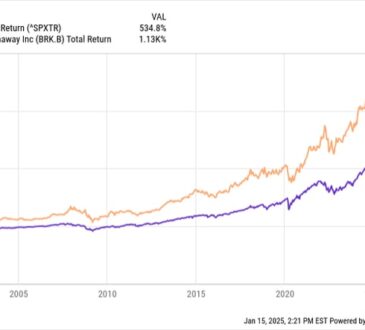Unlock the Editor’s Digest for free
Roula Khalaf, Editor of the FT, selects her favourite stories in this weekly newsletter.
The UK has had remarkable success in founding and nurturing tech and growth companies. It ranks third in the world for the number of start-ups, behind only the US and China, and way ahead of European rivals. It’s also the third-biggest destination in the world for venture capital investment.
It maintains this strength when companies are a stage further along: it has the fourth largest number of $1bn-plus private companies — “unicorns” — in the world. But when these companies are more mature and listed on the major exchanges, the country falls woefully short.
Information technology companies make up only 1 per cent of the FTSE 100; in the S&P 500, it’s 29 per cent. This is because once British growth companies reach a certain critical mass they often choose to go public on a foreign stock exchange.
Alternatively, they may sell out to a foreign acquirer, the latest example being UK software company Gresham Technologies’ acquisition by STG Partners. Once public, they may transfer their listing abroad.
This lack of larger tech and growth companies has clearly contributed to the FTSE 100’s abysmal long-term performance: despite touching a new high this week, it’s a mere 16 per cent above its peak in 1999. But it has also damaged the country’s economic growth. A British company that becomes listed in Germany will almost inevitably become more German-oriented. A Japanese acquirer of a UK tech company will own that company’s intellectual property. A US acquirer of a British company will often use its acquisition’s superior products and services to expand in its much larger home market.
The UK government has sensed there is a problem. Its default response has been to add to the existing pile of tax incentives, including ISAs, capital allowances, the enterprise investment scheme, patent boxes and venture capital trusts and, most recently.
While these measures have had some success in certain areas, they have clearly failed to accomplish the crucial objective of keeping growth companies at home.
There is certainly room for the authorities to make it more difficult for foreign companies to acquire prize British assets. The US Committee for Foreign Investment is far more active and interventionist. But in addition the UK needs to have a well-functioning and hospitable capital market for larger tech and growth companies, which currently it does not.
One feature which creates a roadblock against a London listing for many tech entrepreneurs is the UK’s prohibition against dual share classes, which allow founders to retain voting control of the company. A British Mark Zuckerberg of Meta, or Larry Page and Sergey Brin of Alphabet, may never have stayed onshore if they were not certain they could implement their vision.
While preferential voting rights feature only rarely in the broader US market, for tech they’re fundamental. According to a survey by Jay Ritter of the University of Florida, half of all US tech IPOs in 2022 had dual share classes. Some have thought this provision unfair, but that appears not to be the consensus view among investors: Alphabet’s voting and non-voting shares trade at virtually the same price.
Then there is the harmful effect of the UK government’s 0.5 per cent stamp duty charge on share purchases. This eats into investors’ returns and thus drives investment to more benign locations, potentially having a knock-on effect on valuations.
It also impedes liquidity, which is so vital both for all stock markets, and for growth funds, the natural investors for tech stocks. In the US, transaction costs have declined from up to several per cent before deregulation of commissions on “Mayday” 1975, to zero or a minuscule percentage. The years since 1975 have demonstrated a pronounced inverse correlation between trading costs and exchange activity, and thus liquidity.
Even if the above issues were resolved, the US equity market still possesses two insuperable advantages. It has far greater depth as a source of potential funding, given its capitalisation is 12 times that of the UK’s, and it’s valued substantially more highly — the Nasdaq Composite’s earnings multiple being almost double the FTSE’s.
But if British public companies were to move on from their antiquated system of having to raise equity through “rights issues”, where existing shareholders are theoretically protected from seeing their proportion of ownership diminished, they would be able to offer new shares on the US exchanges to US investors. They could make regular US style “secondary offerings”, which are open to a broad range of investors and priced at or close to the market price, using their US listed shares, American Depository Receipts (ADRs). They would thus gain access to the full depth of US investment capital, while an enlarged American shareholder base and higher US profile would help close the valuation gap.
These changes wouldn’t be immediately transformative. But if all were implemented together as part of a plan they would encourage growth companies to list in London, which would gradually help build confidence, not only among peers but in the broader market, and establish a trend over the longer term.
The author is chief executive of Tail Wind Advisory & Management




